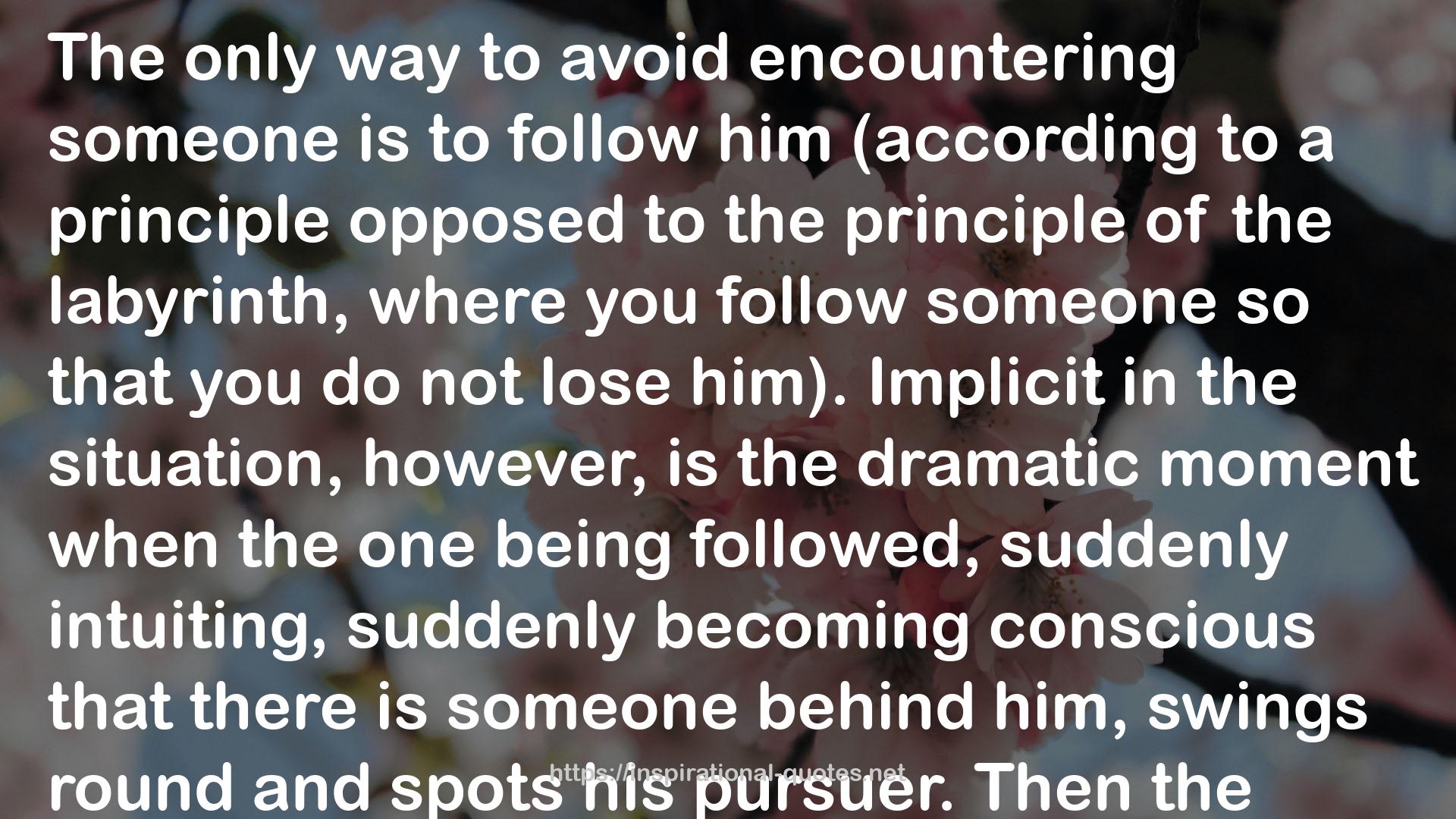" The only way to avoid encountering someone is to follow him (according to a principle opposed to the principle of the labyrinth, where you follow someone so that you do not lose him). Implicit in the situation, however, is the dramatic moment when the one being followed, suddenly intuiting, suddenly becoming conscious that there is someone behind him, swings round and spots his pursuer. Then the rules are reversed, and the hunter becomes the hunted (for there is no escaping laterally). The only truly dramatic point is this unexpected turning-round of the other, who insists upon knowing and damns the consequences.
This reversal does in fact occur in the Venice scenario. The man comes towards her and asks her: 'What do you want?' She wants nothing. No mystery story, no love story. This answer is intolerable, and implies possible murder, possible death. Radical otherness always embodies the risk of death.
S.'s anxiety revolves entirely around this violent revelation: the possibility of getting herself unmasked - the very thing she is trying to avoid. 'I cannot go on following him. He must be uneasy, he must be wondering if I am here, behind him - surely he is thinking about me now - so I shall have to keep track of him in some other way.'
S. could have met this man, seen him, spoken to him. But in that case she would never have produced this secret form of the existence of the Other. The Other is the one whose destiny one becomes, not by making his acquaintance in difference and dialogue but by entering into him as into something secret, something forever separate. Not by engaging in a conversation with him as interlocutor, but by entering into him as his shadow, as his double, as his image, by embracing the Other the better to wipe out his tracks, the better to strip him of his shadow. The Other is never the one with whom we communicate: he is the one whom we follow - and who follows us.
The other is never naturally the other: the other must be rendered other by being seduced, by being made alien to himself, even by being destroyed - if there is no alternative (but in fact there are subtler ways of achieving this end). "
― Jean Baudrillard , The Transparency of Evil: Essays in Extreme Phenomena
